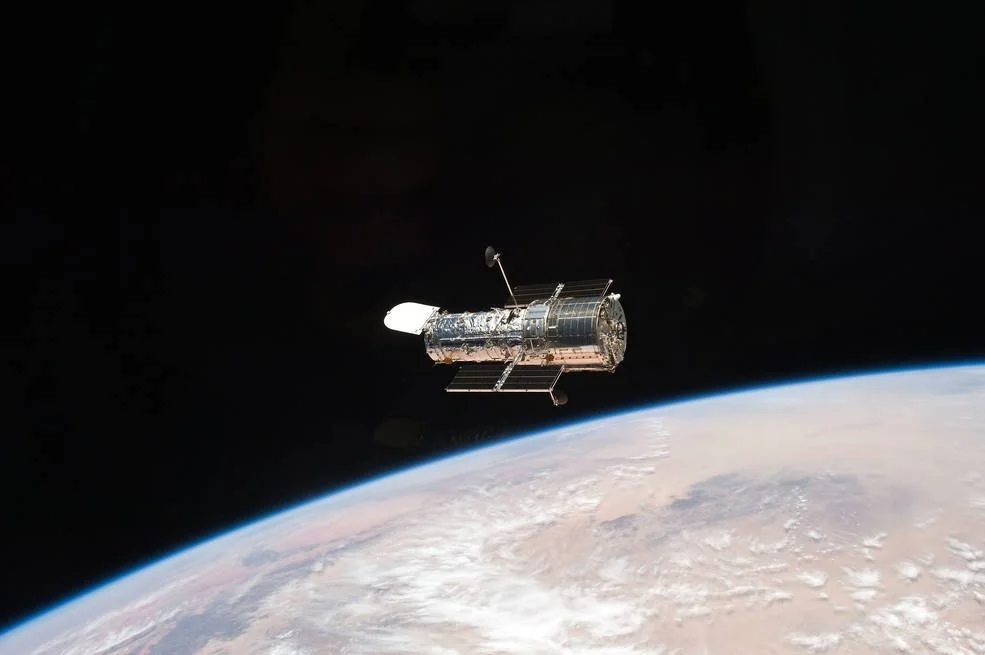Dr. Christopher Britt (pictured) from the Space Telescope Science Institute will talk about the Hubble Space Telescope’s new program that will create a legacy of data on the first 10 million years of stellar evolution and that will support the exploration of a range of research topics for decades to come. Registration is required: https://hubble.eventbrite.com
REGISTRATION REQUIRED FOR THIS FREE VIRTUAL EVENT:
Hamptons Observatory (HO), a 501(c)(3) NYS nonprofit that relies on public support has served the South Fork since 2005. Hamptons Observatory offers all of its programs free-of-charge so that everyone can enjoy the wonders of their Universe. Please consider making a tax-deductible donation to help support our work. Thanks!
The Hubble Space Telescope
Virtual Astronomy Lecture:
“Hubble’s Ultraviolet Legacy” (A Free, Virtual Lecture)
SPEAKER: Dr. Christopher T. Britt, Space Telescope Science Institute
CO-HOST: Suffolk County Community College
Registration is required: https://hubble.eventbrite.com
Hamptons Observatory, and co-host Suffolk County Community College, are pleased to present a free, virtual lecture by Dr. Christopher T. Britt from the Space Telescope Science Institute.
The largest program in Hubble’s history, the Ultraviolet Legacy Library of Young Stars as Essential Standards (ULLYSES), is laying the groundwork to understand the impact that young stars have on their environments, from the early universe to potentially habitable worlds. Understanding ultraviolet (UV) emission of high and low mass young stars is critical in order to make full use of the data coming in from the James Webb Space Telescope and other ground- and space-based observatories. The overarching goal is to provide a definitive data set on the first 10 million years of stellar evolution. Hubble will build a data set by gathering spectra, which spread light into its component wavelengths and reveal details about each star’s size, temperature, speed, distance and composition. The Hubble Space Telescope provides our primary window into the UV and the ULLYSES program will leave a legacy that will support the exploration of a range of research topics for decades to come.
Dr. Christopher T. Britt is the Education and Outreach Scientist at the Space Telescope Science Institute (STScI). He works on NASA’s Universe of Learning and outreach for the Hubble and James Webb Space Telescopes, tying together science themes across multiple missions for the public that allows learners of all ages to directly engage with astrophysics. Prior to joining STScI, Dr. Britt was a post-doctoral researcher at Michigan State University and Texas Tech University, where his primary research focus was on compact binaries, where a compact object such as a white dwarf, neutron star, or black hole accretes material from a companion star through an accretion disk. Dr. Britt used multi-wavelength surveys of crowded regions to identify new compact object binaries in both the galactic field and in globular clusters. His research interests also include supernovae and supernova remnants.
Hamptons Observatory extends its deepest thanks to Dr. Britt for generously taking the time to share his expertise, and to co-host Suffolk County Community College for its kind collaboration.
While this lecture is free, donations to support our programs are deeply appreciated.
REGISTRATION IS REQUIRED FOR THIS FREE, VIRTUAL EVENT:
Contact us for further info, questions, or to join our mailing list.

